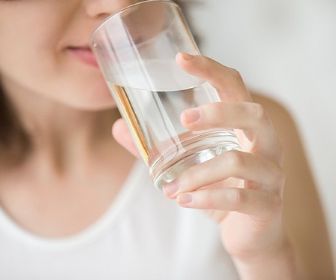Uti Treatment Without Antibiotics
Aug 21, 2019 • 70 views

source:hotzehwc.com
What is UTI?
Urinary Tract Infection abbreviated as UTI is the most common type of infection found most commonly among the woman. A woman has a shorter urethra, bacteria can easily move into their bladder. Approximately 40 to 60 percent of women will have one UTI during their lifetime. UTI alone accounts for around 8 million doctor visits in a year. In case of complicated UTI, it’s always recommended to visit the healthcare provider. However, when the UTI is less severe UTI treatment without antibiotics is possible.
Nearly 65 to 90 percent of UTI is caused by bacteria called EscherichiaColi. However in some cases, it is also caused by other pathogens like Klebsiella species, Proteus species, Pseudomonas aeruginosa, and Enterococcus species. Bacteria are present in our intestine, skin and vagina but when it reaches our urinary tract is causes infection. This infection can affect
urethra
bladder
ureters
kidneys

source:drpatkars.com
Urethra and bladder are the lower part of our urinary system and ureters and kidneys are the upper part. Infection over here the lower part of our urinary tractis called cystitis. Infection in the upper part of the urinary tract is called pyelonephritis. 25 to 42 percent of less severe UTI affecting our urethra and bladder can go away on its own, in these cases UTI treatment without antibiotics is possible.
Symptoms of UTI
Symptoms of UTI includes
Reduced flow of urine.
Bloody and odourful urine.
Lower abdominal cramps.
Burning sensation while urination (dysuria).
Need to urinate more often and sometimes a sense of urgency to urinate.
Causes of UTI
Weak immune system, diabetics, urinary structure abnormalities and catheter use.
The distance between woman’s urethra and anus is very short, so this allows the bacteria E-coli to get easy access into the urinary tract. Thus causing the infection.
During menopause women has a low secretion of estrogen and low pH balance making them more prone to infection.
Women are more likely to get an infection during sexual activity.
How is UTI treated?
Treatment of cystitis(Uncomplicated UTI)
For Uncomplicated UTI(cystitis), the doctor prescribes treatment with no test. In case the doctor diagnose you with a complicated UTI, he or she will recommend a urinalysis. The urinalysis can be a routine or a culture. This urinalysis can determine how serious your infection is.
For uncomplicated UTI the doctor normally recommends the below antibiotics
nitrofurantoin (Furadantin, Macrobid, Macrodantin)
fosfomycin (Monurol)
sulfamethoxazole-trimethoprim (Bactrim DS, Septra DS, others)
Amoxicillin/clavulanate (Augmentin)
Normally the doctor chose the antibiotics depending on various factors like
Patient history
Type of UTI
Local resistance pattern
The doctor will recommend a course of antibiotics for 5 to 7 days. It’s very important to complete the course of the medication.
Sometimes the UTI can be cured on its own by following certain home remedy, thus UTI treatment without antibiotics is possible only in case it’s a cystitis.
Treatment for pyelonephritis(Complicated UTI)
Complicated UTI or pyelonephritis requires immediate medical attention. Else it can cause considerable damage to the kidney. Kidney infection requires hospitalization, injectable treatment and higher antibiotics. The doctor may recommend higher antibiotics like
Vabomere (meropenem and vaborbactam) is used for the treatment of an adult patient having traces of susceptible Escherichia coli, Klebsiella pneumoniae, Enterobacter cloacae species.
Zamdri (plazomicin) is an aminoglycoside which is used against Enterobacteriaceae in patients.
Avycaz (ceftazidime and avibactam)
Zerbaxa (ceftolozane and tazobactam)
Treatment of recurring UTI
Around 25 to 50 percent of women will have another UTI within a month. For them the doctor recommends antibiotic prophylaxis. The normal course of the antibiotic is for 3 days. However to know the cause of recurrent UTI the recommends a urine culture.
Side effects of Antibiotics
Every antibiotic has its own side effects, which the healthcare provider will discuss with you.However most common side effects faced by the user are
1. Stomach upset and allergy
Sometimes intake of antibiotics can lead to nausea, vomiting, rash and headaches. Some people are also allergic to antibiotics. Sometime antibiotics can cause allergies which are minor like rash, skin peeling. The group of antibiotics like sulfonamides, penicillins, cephalosporins, and fluoroquinolones may cause Stevens-Johnson syndrome(SJS) or toxic epidermal necrolysis (TEN) ,which are serious skin allergy.
2. Bacteria become resistant to antibiotics
When we have recurrent UTI and use a certain antibiotic, again and again, the bacteria become resistant to antibiotics. Sometimes when we do not complete the dose of antibiotics again, there is a risk of the bacteria becoming resistant to the antibiotics
Our body contains good bacteria and bad bacteria. Good bacteria helps in our body function. When we take antibiotics it kills the good bacteria, which again causes a different complication.
High rates of resistance is observed in common antibiotics like amoxicillin for cystitis. So in less complicated cases UTI treatment without antibiotics is better.
3. Vaginal yeast infection
To maintain the normal flora balance in the vagina we need the good as well as bad bacteria. Use of antibiotics leads to kill the good bacteria, thus disturbing the normal flora balance and leading to the fungal overgrowth. Vaginal candidiasiscauses fungal infection.
4. Ill effects of Quinolones
Quinolones such as ciproflaxin(Cipro) and levoflaxin(Levaquin) are used for treating uncomplicated UTI. But as per FDA recommendation it should be used for complicated infections only. Research says that within weeks of using these medicine, it causes potential damage to the central nervous system, joints and muscles.
UTI Treatment without Antibiotics
Prevention is better than cure.
We should maintain a proper lifestyle to prevent UTI's.Incorporating below habits will be beneficial to us
1. Drink plenty of water

source:healthline.com
“Pure water is worlds first andforemost medicine”.
Water helps our kidneys to function well. More water intake helps to release more urine, thus helping our body to flush out all the toxins from ourbody and removes all the harmful bad bacteria from our system.
Avoiding sugary and aerated drinks. The sugary drinks help the colony of bacteria to grow rapidly. Plain water helps to clear the infection.
Plain water also keeps the vital nutrients and electrolytes in our body. Helps in the flow of nutrients to all parts of our body.
It is recommended to drink 2 to 4 litres of water every day. Stay hydrated and keep the diseases in the bay.
2. Intake of Cranberries

source:speciality.mims.com
Cranberry juice has an active compound that fights UTI. This active component prevents the adherence of the bacteria to the bladder wall.
It is always recommended to drink unsweetened cranberry juice. You can also try the dried cranberries with lots of water.
Studies also suggest that cranberry has antioxidants and polyphenols which has antibacterial and anti-inflammatory properties.
3. Adding Probiotics to your diet

Source:enatural.com
Probiotics contains Lactobacillus rhamnosus GR-1 and L reuteri RC-14 helps in preventing UTI. Regular consumption of probiotics improve your digestive system and immunity.
Probiotics also produces hydrogen peroxide in urine that antibacterial. It also balances the pH level of our urinary system, making it difficult for the bad bacteria to grow.
Food containing probiotics are
4. Vitamin C intake

source:enatural.com
A scientific study in 2016 showed that use of Vitamin C, cranberries and probiotics considerably reduced the recurrent UTIs. 75 mg of Vitamin C is recommended for a woman every day.
Vitamin C from fruits and vegetables increase the acidic property of the urine, thereby killing the bad bacterias causing infection.
The antioxidant property of Vitamin C improves your immunity system and also keeps the UTI away.
Rich source of vitamin c are kiwis,oranges,grapes and green apples. Make sure to add these in your daily diet.
5. Having Baking Soda with water

source:healthline.com
Having a small amount of baking soda with water can also be helpful during UTI.
Baking soda can help to neutralize the acid in the urine which prevents the growth of the bacteria causing the infection. Reducing the discomfort during the infection.
As there is little research into this remedy, this method is sceptical. But still, this remedy works for some.
Maintaining proper personal hygiene to avoid UTI
Always use 100% cotton undergarments.
Always wipe from front to back after urination. By this way, you can avoid bacteria from the rectum to enter the urinary tract organs.
Practice good sexual hygiene, like cleaning the genitals and passing urine before and after sexual intercourse.
Using coconut oil also helps to reduce the irritations and fights fungal infection.
When should you visit the doctor?
You should visit the doctor if you are facing any of the below symptoms.
If you find blood in the urine.
when you start pee often but in a small amount.
If you feel a burning sensation and pain.
